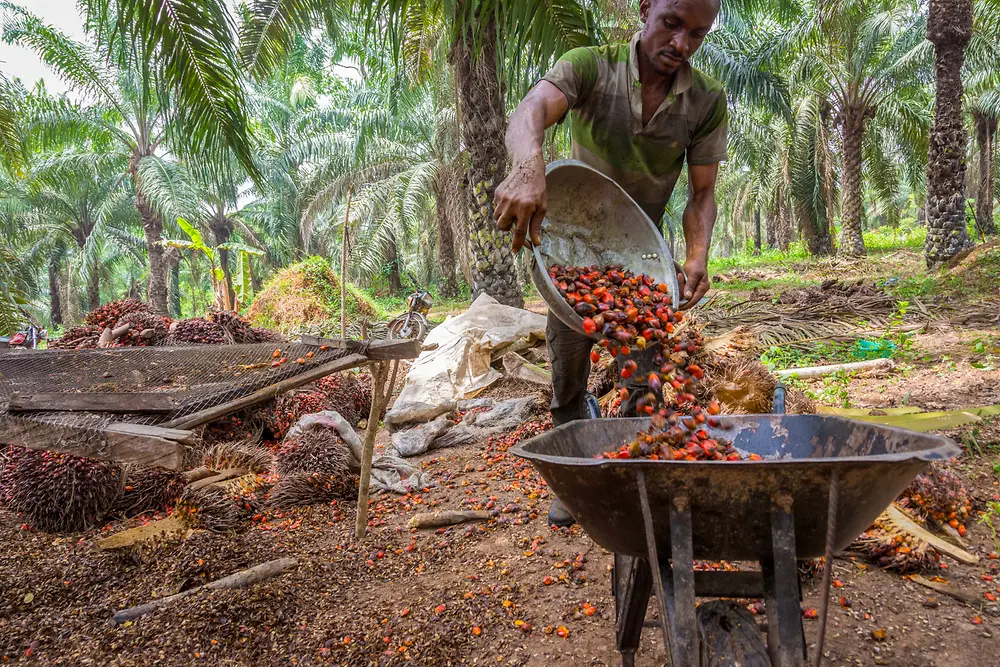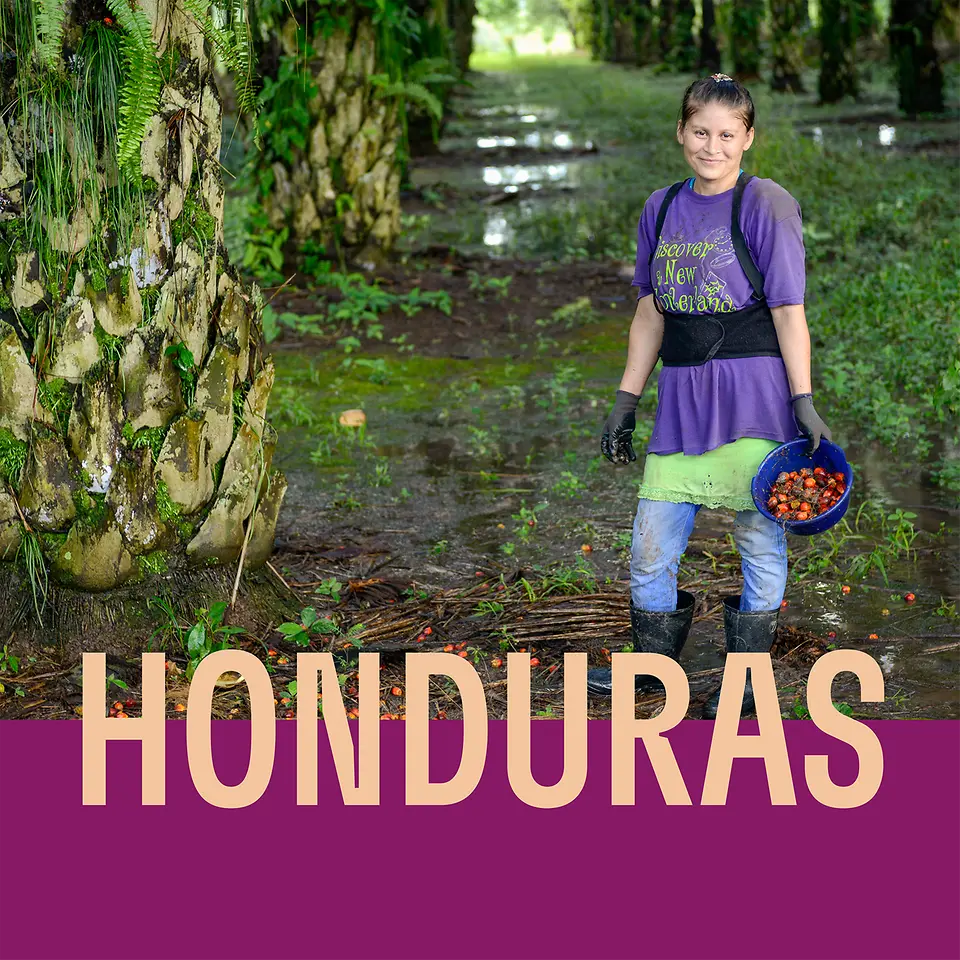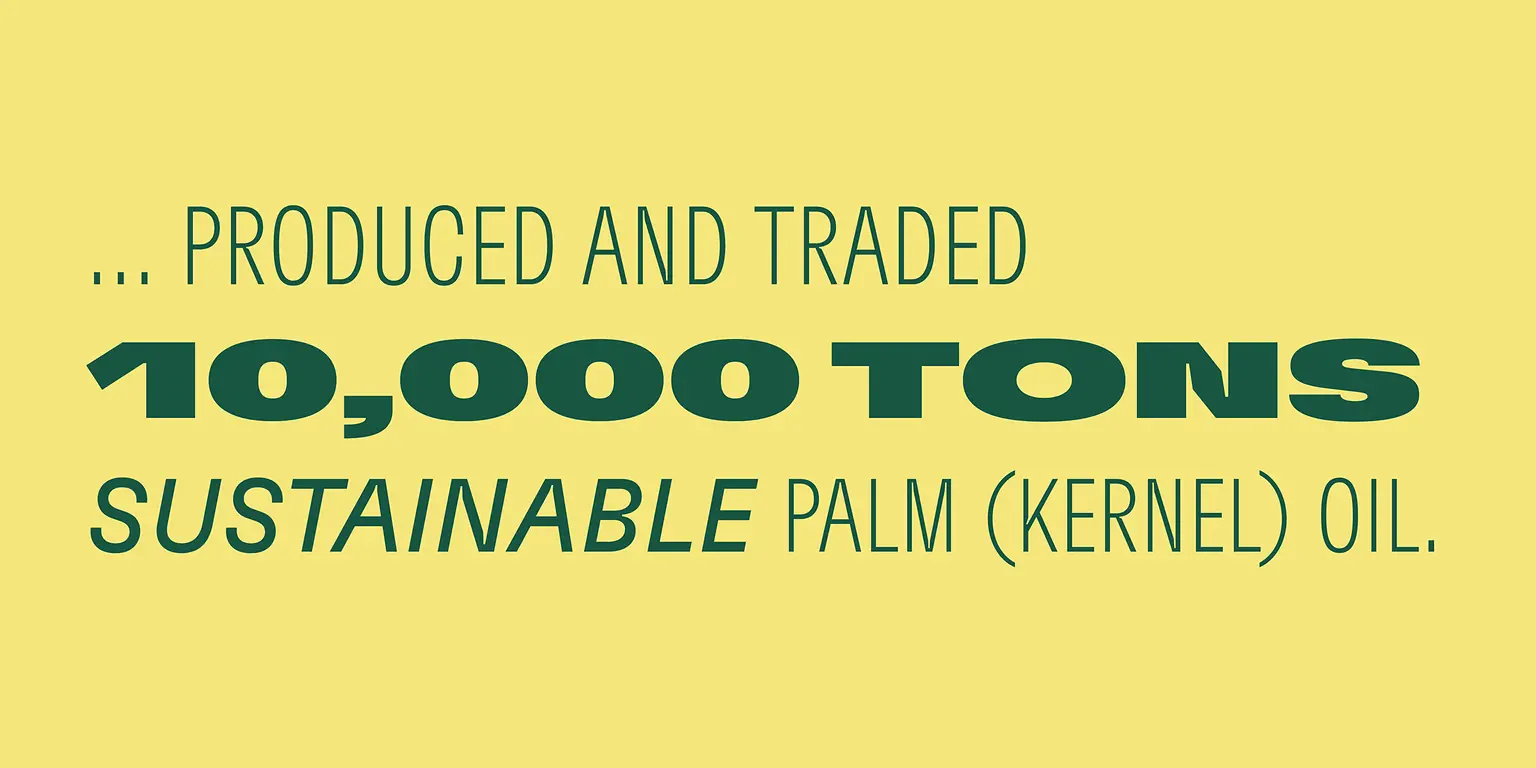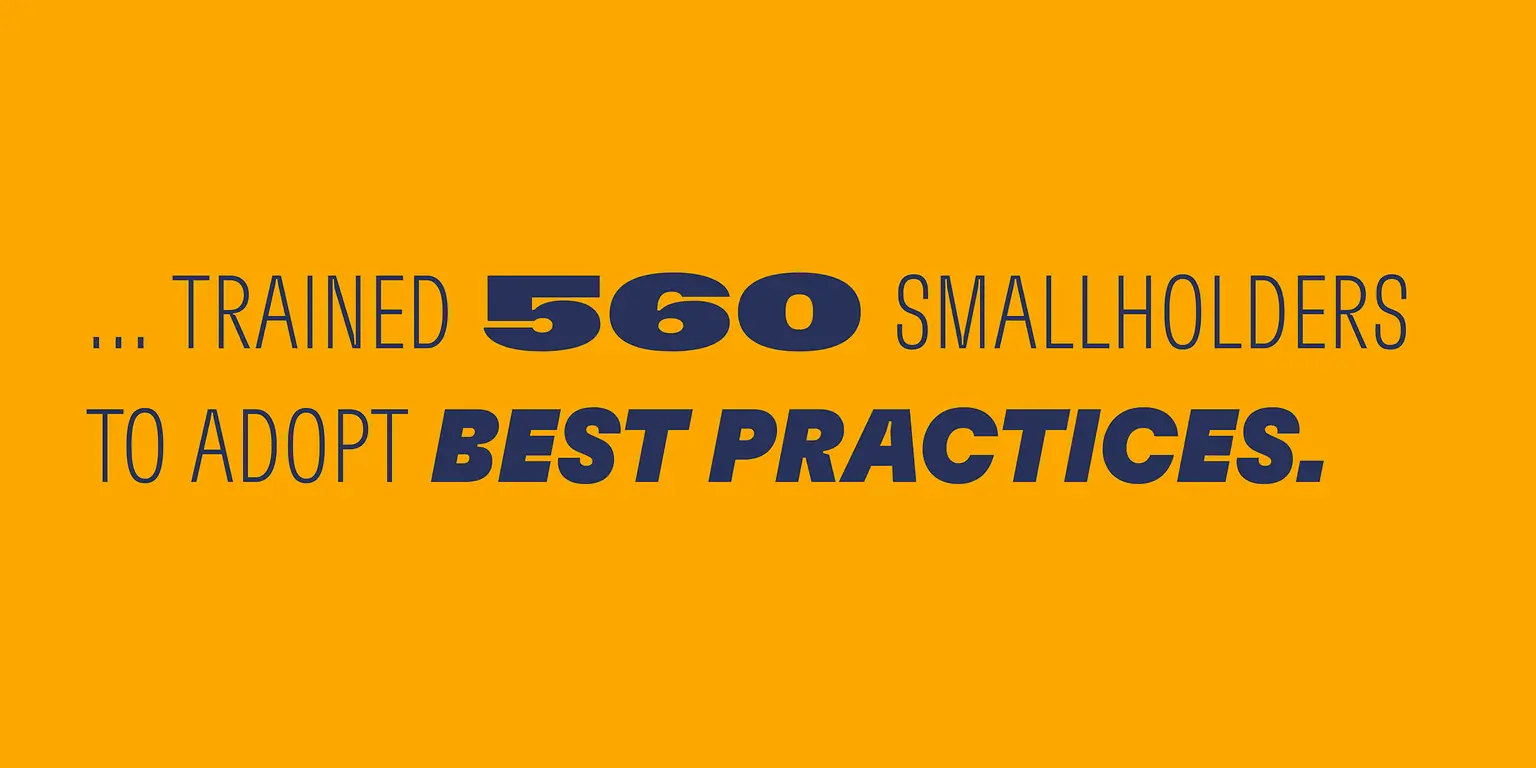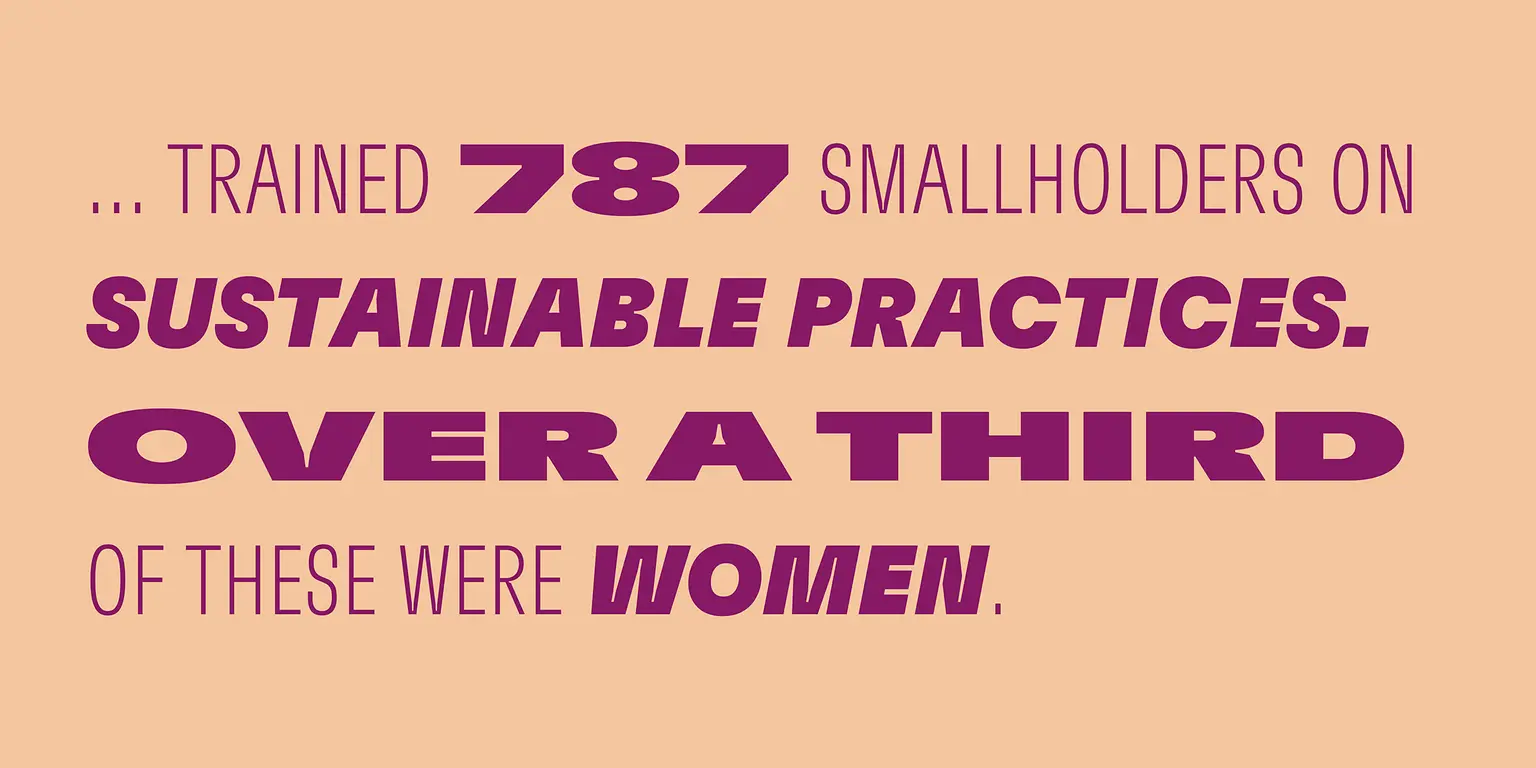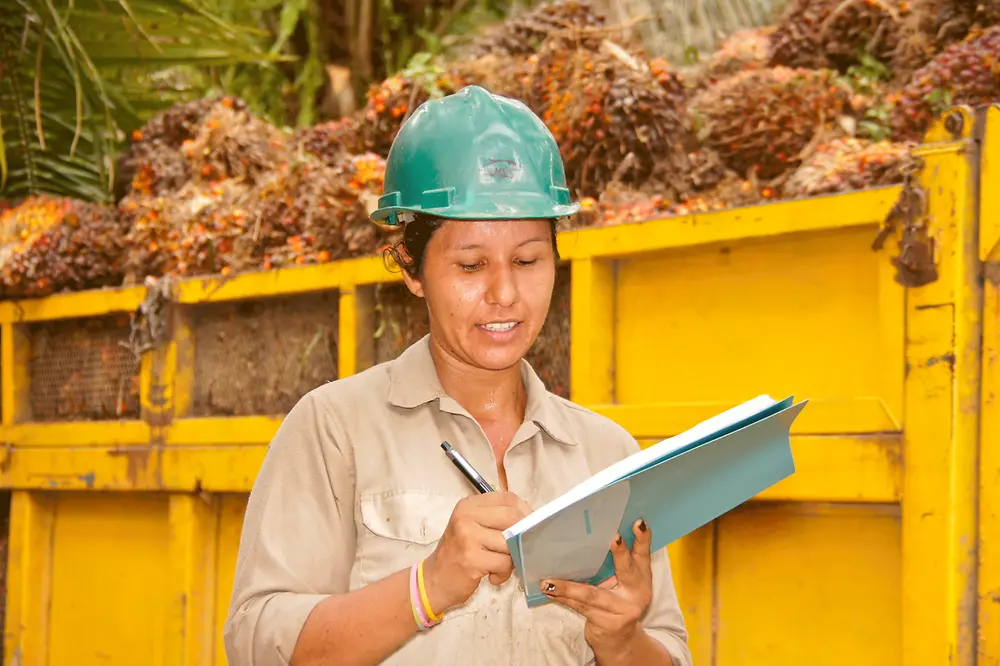“On average, the oil palm plantations of smallholders in Malaysia or Indonesia are only two hectares in size,” explains Marieke Leegwater, Palm Oil Expert and responsible for Sustainable Policy Development at Solidaridad. That's equivalent to two soccer fields and allows for the cultivation of up to 300 oil palms, she explains. “Most of our farmers have far less due to cultivation issues,” adds Marieke, who regularly does grassroots work at the community level in various projects. And yet, oil palms – compared to other types of cultivation – are more resource-efficient than other vegetable oils, requiring less land to yield a comparable amount, which in turn has a direct advantage for the lives of smallholders: “The trees bear fruit all year round, which ensures regular income for the families,” Marieke explains.
For many smallholders, palm (kernel) oil is their lifeline. In collaboration with them, Henkel and Solidaridad help to enhance their crop quality which optimizes their palm (kernel) oil yield. This supports their journey to a more sustainable livelihood. But supporting smallholders goes beyond cultivation issues. “The European markets in particular are demanding more and more from the smallholders: dozens of processes have to be documented and kept, lands have to be mapped. All these bureaucratic hurdles, which industrial producers are used to and overcome almost effortlessly, have regularly overwhelmed smaller suppliers in the past – and sometimes still do,” explains Marieke.





